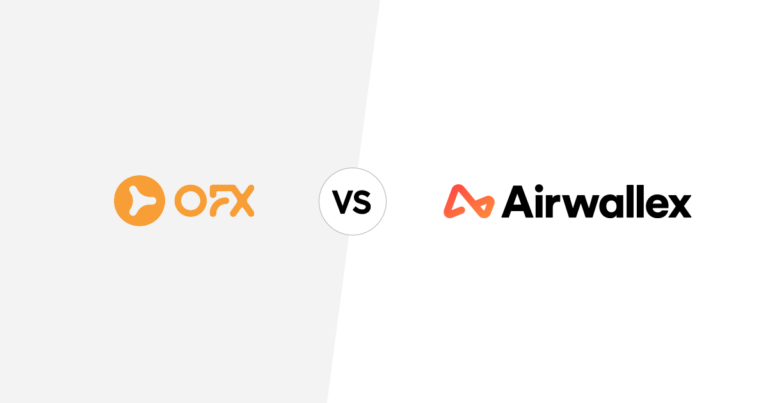Planning Your Next Career Move? Here Are 5 Trending FinTech Careers For 2019

This article covers:
Over the past decade, the rapidly growing FinTech industry has become indispensable for today’s generation. In almost every corner of the world, disruptive and innovative FinTech solutions are reinventing and even ‘democratising’ the financial landscape by making financial services more accessible to users and by eliminating a lot of the guesswork usually involved in financial decision-making.
According to the Global Fintech Report 2019 by CBInsights, these are the biggest FinTech trends for 2019:
- Marketplace lending and underwriting
- Blockchain/Crypto
- Audit, risk and regulatory compliance
- Personal finance tools
- Payments processing and subscription billing
- Insurance and data analytics for insurers
- Capital markets trading, analysis and infrastructure tools
- Investment and wealth management platforms
- Money transfer/remittance software
- Mortgage/real estate lending, digitisation and financing platforms
Unsurprisingly, as FinTech gains momentum year-on-year, the demand for professionals with specific FinTech skills is also increasing. A well-known 2015 article published on LinkedIn, the social media platform for professionals, had predicted that the global skills gap for candidates with tech experience/expertise will hit 1.5 million by 2020. Almost half a decade after the article first came out; the demand for skilled professionals in the FinTech industry still outstrips supply and FinTech firms are scrambling to find employees with niche FinTech skills to fulfil critical roles.
In this article, we explore 5 FinTech careers that we think will be trending in 2019.
Aspiring FinTech professionals can access these ‘jobs of the future’ through the following platforms:
- FinTech startup firms
- Traditional financial institutions and banks
- Financial advisory firms
- Accelerator programmes
1. Blockchain Developer

Blockchain developers are primarily responsible for researching, designing, implementing and testing Blockchain technologies around certain business models. They also evaluate applications for new tools and technologies, document new solutions and maintain existing ones. Often, they are expected to be involved in the global Blockchain community.
The top skills for Blockchain developers are Solidity, Blockchain, Ethereum, Cryptocurrency, Node.js. Programming skills in Hyperledger Fabric and Ripple are additional assets. Moreover, a Blockchain developer who is skilled in cryptography, P2P networks and machine learning and has knowledge about common algorithms and data structures has a promising career ahead of him and can expect to be in high demand in the FinTech industry.
According to LinkedIn’s 2018 U.S. Emerging Jobs report, the role of a Blockchain Developer is the most rapidly growing job in the United States, having witnessed a 33X increase over the previous year. A report by Glassdoor found that as of August 2018, US companies had posted 1,775 Blockchain vacancies, a 300% increase over the same period of 2017.
American Cities With The Highest Demand For Blockchain Developers
- San Francisco
- New York City
- Atlanta
- Palo Alto
- Chicago
- Boston
- Austin
- San Jose
- Atlanta
- Raleigh
- Los Angeles
Many of these job vacancies are in large firms, mostly big tech players like IBM, Deloitte, Microsoft and Accenture. However, following the surge in interest around cryptocurrencies, many government agencies and entrepreneurs are also jumping on the Blockchain bandwagon. Therefore, Blockchain professionals can have their pick of opportunities in industries such as banking, traditional finance firms, information technology, computer software, real estate, healthcare, data management, governance and even digital art.
Apart from the US, interest in Blockchain technology has been growing globally.
Blockchain Hotspots Beyond The Silicon Valley
- London:
- Switzerland:
- Singapore
- South Korea
The Largest Talent Pool Of Blockchain Professionals
- India
- Australia
- Japan
- China
- Singapore
These 5 countries contribute to about 80% of the Blockchain engineer population in the Asia-Pacific region.
On average, highly-skilled Blockchain professionals in the US can earn about $130,000 annually, with higher salaries (approx $158,000) available in high-tech regions such as New York City and Silicon Valley. This is much higher than the $105,000 annual salary earned by a typical software developer in the US.
In Switzerland, cryptocurrency and blockchain developers earn much more than their US counterparts – between $120,000 and $180,000 per year. The bigger salaries are mainly due to the rapid digitalisation in Switzerland’s finance sector plus active development of initial coin offerings (ICOs) and digital currencies.
Despite high demand in the UK, salaries for Blockchain professionals tend to be lower here, ranging from $60,000 per year for a new developer at a tech startup to $90,000 – $140,000 at a bigger company.
Freelance blockchain technologists can earn anywhere between $50 and $100 per hour. This can go as high as $150 per hour, according to Upwork, an online job portal for freelancers.
2. App Developer

According to a 2018 report by Juniper Research, there will be over 2 billion users of mobile banking apps by 2020, driven mainly by demand from younger, tech-savvy, Smartphone-obsessed consumers. This number will continue to grow as more banks and financial institutions develop increasingly targeted and relevant solutions to help meet their customers’ specific needs and goals.
FinTech developers apply new cutting-edge technologies such as Artificial Intelligence to design solutions that can do all this and more:
- Facilitate real-time digital payments
- Help users access loans more quickly than with traditional banks or financial institutions
- Connect new businesses with potential investors
- Enable institutions to mitigate the risks of financial fraud and cybersecurity attacks, and keep their customers’ money and personal details safe
Consequently, some of the most popular FinTech apps can be found in the following fields:
- Mobile banking
- P2P (peer-to-peer) lending
- Mobile payments
- Short-term loans
- InsurTech
- Wealth management
- Stock trading and investments
- Money transfers
- Blockchain
- RegTech
- Roboadvisory
Over the next few years, the app market will see even more spectacular growth and therefore, highly-skilled developers who can design apps in the areas mentioned above will also increase.
FinTech app developers must have a strong foundation in programming languages such as Python, C, C++, C# and Java as well as databases like MongoDB and Apache Cassandra. For web application developers, knowledge of Node.js and Javascript will also be useful. And as Artificial Intelligence becomes ever more important in FinTech, familiarity with data science and machine learning will also help. In addition, cybersecurity and Blockchain exposure plus distributed ledger expertise will help an app developer set him/herself apart from the regular crowd and demand higher salaries.
Salaries for developers in Fintech vary from country to country. According to PayScale, an app developer in the US can earn between $75,000 and $80,000 annually. Experienced developers can earn up to $107,000 per year while senior developers can earn as much as $117,000, annually.
Average Annual Salaries For App Developers
| Country | Salary in USD equivalent |
| Israel | $50,600 |
| UK | $50,000 – $80,600 |
| France | $67,000 |
| Germany | $50,000 – $75,500 |
| Belgium | $62,400 |
| Denmark | $80,000 |
3. Data Specialist

A 2015 report by Deloitte found that data plays a ‘strategic’ role in FinTech, enabling financial services to deliver relevant value to customers and build better relationships with them now and in the future. And thanks to the unprecedented growth and adoption of Internet-enabled FinTech solutions, ‘Big Data’ is now the norm rather than the exception.
In fact, FinTech has been able to shake up the financial services landscape mainly because it has been able to design Big Data applications that can increase financial transparency and improve decision-making. In addition, today’s customers demand more relevant and targeted services tailored to their specific individual needs. All of this can only be possible if the ‘3Vs’ of Big Data are in place: data created in large Volumes and wide Varieties and then processed at high Velocities.
However, merely accumulating and accessing Big Data will not help FinTech firms understand customers and improve their market share. Data experts – scientists, analysts and managers – are required to mine and organise the data, give greater insights into markets and provide recommendations for new products and services. This is why the demand for data specialists is rising all over the world. This is evidenced by Glassdoor’s 2017 report 50 Best Jobs in America which pegged the role of Data Scientist at the top spot for the second consecutive year. The Data Engineer role came in a close third. A few years earlier, in 2012, Harvard Business Review had famously dubbed the Data Scientist role as “The Sexiest Job of the 21st Century”.
Anecdotal evidence also suggests that Data Science is fast becoming one of the most important and in-demand skills for the FinTech industry. The demand/supply gap is pretty big for two types of data specialists: Data Scientists who can perform insightful analytics on huge volumes of data and Analytics Consultant who can understand and use this data to create useful new applications.
In the FinTech industry, a data specialist is needed for all of the below applications:
- Fraud detection
- Risk management
- Compliance
- Customer segmentation, targeting and personalisation
A data scientist may also be responsible for building Machine Learning (ML) and Artificial Intelligence (AI) tools to automate or streamline processes within a company.
An ideal Data Scientist would have a mix of multi-disciplinary skills and expertise in Mathematics, Statistics, Communication, Computer Science (programming, databases, etc) and even Business. These include:
- Data mining, data warehousing
- Machine learning algorithms: k-NN, Naive Bayes, SVM, Decision Forests, etc.
- Statistical modelling
- Bayesian inference
- Supervised and unsupervised learning: decision trees, logistic regression, clustering, etc.
- Scripting languages, e.g. Python
- Data science toolkits: R, Python, Weka, NumPy, MatLab, etc.
- Data visualisation tools: D3.js, GGplot, etc.
- Proficiency in query languages: SQL, Hive, Pig, etc.
- Parallel databases and parallel query processing
A 2018 report on Salaries of Data Scientists by Burtch Works found that the median annual starting salary for a data scientist in the US is $95,000. A mid-level data scientist can earn $128,750 per year and up to $185,000 if he/she is also in a managerial role. Experienced data science professionals can earn at least $165,000 and up to $250,000 if they are also experienced managers. Data scientists with a Doctorate tend to earn higher median base salaries than those with a Master’s degree.
In the US, salaries for data specialists tend to be highest in California and the Pacific Northwest.
Other High Paying Countries
- Australia: $111,000
- Israel: $88,000
- Canada: $81,000
- Germany: $80,000
- Netherlands: $75,000
- Japan: $70,000
- UK: $66,000
High On Demand, Low On Pay
- Brazil: $35,000
- Poland: $29,000
- Ukraine: $25,000
- India: $14,000
- Russia: $13,000
4. Cybersecurity Specialist

The pervasiveness of the Internet in the financial services industry has had an unfortunate side-effect: it has created a new breed of cybercriminals. A 2017 report by Accenture found that there is close to a 30% year-on-year increase in the average number of security breaches in organisations worldwide. Specifically, FinTech start-ups are 65% more vulnerable to such malicious security threats than the average organisation across all industries, according to research by IBM’s X-Force. The Accenture report finds that in order to cope with these attacks, firms have to bear a 23% year-on-year increase in the cost of cybersecurity and crime prevention. This translates to an average annual cost of a whopping $17 million.
Despite these efforts, cybercriminals are getting smarter day-by-day and launching ever more sophisticated cyber attacks on financial platforms. Therefore, the demand for specialist cybersecurity professionals – experts who understand an organisation’s system and can recommend ways to close existing security loopholes – is on the rise.
The demand-supply gap is very wide, however, as evidenced by a 2015 study [(ISC)² Global Information Security Workforce] that predicts a shortage of 1.5 million information security professionals by 2020. A report by Cybersecurity Ventures estimates an even higher demand, predicting that there will be 3.5 million unfilled cybersecurity positions by 2021. Not just the US, this high demand-low supply trend will hold true in Europe, Middle East, Africa and the Asia Pacific as well, according to the study.
Since supply is not growing at the same rate as demand, skilled security professionals are able to earn good salaries. For example, security analysts working in the US private sector can earn up to $81,000 per year. If they have CISSP (Certified Information Systems Security Professional) certification, they can earn as much as $100,000 per year. In the UK, security consultants can earn an annual salary of at least GBP 61,000.
Some of the most in-demand skills for cybersecurity professionals may include any or all of the below:
- Incident investigation and response
- Governance, risk management and compliance (GRC)
- Digital communication technologies
- Encryption methods
- Analytical skills
Other desirable skills may include security operations management, virtualisation, data administration and management, business communication and platform/technology-specific skills.
Job titles for cybersecurity professionals include:
- Security analyst
- Security consultant (management)
- Security auditor
- Security advisor
- Information assurance manager
- Security systems administrator
- Security architect
- Network administrator
5. Compliance Expert

Since the global financial crisis, governments all over the world have tightened business regulations and ramped up their enforcement activities, particularly through fines and other penalties. This has impacted banks, financial institutions and FinTech firms to:
- Find ways to fill compliance gaps in their operations
- Build compliant solutions to save on the costs of non-compliance
- Detect enterprise risks early to avoid future penalties
A 2017 report by Reuters stated that “since the financial crisis the only steady area of job growth in financial services has been in legal, compliance and risk disciplines.”
A more recent Bloomberg report states that several FinTech companies are increasing their staff strength in the regulatory compliance space. The US Bureau of Labor Statistics (BLS) projects an 8.2% employment growth for compliance officers by 2026. This translates to an estimated 23,700 new compliance-related jobs. Although these numbers are not specific to any one industry, the development and adoption of innovative financial technologies is likely to increase the regulatory burden on FinTech firms as well. Therefore, it wouldn’t be a stretch to extrapolate the BLS results to FinTech and assume that demand for compliance officers in the US FinTech industry will also rise.
UK regulators have also recognised the need for greater regulatory involvement in FinTech and taken appropriate actions to educate firms on how they can meet regulatory requirements and protect consumers at the same time. FinTech firms in Asia are also experiencing similar regulatory scrutiny and are thus hiring more compliance professionals to help them meet this demand.
Common job titles in the compliance area include:
- Compliance analyst
- Compliance manager
- Lending compliance officer
- Anti-Money Laundering compliance officer
- Financial risk manager
- Know Your Customer officer
Depending on the FinTech firm and exact job profile, a compliance professional may be required to have at least an undergraduate degree in Finance, Economics or Accounting. A postgraduate in Compliance Management or Regulatory Compliance as well as knowledge of financial crime, Anti-money Laundering (AML) or Know Your Customer (KYC) norms may be desirable.
In the US, the financial sector is one of the most heavily regulated parts of the economy so some FinTech firms may ask for additional certifications such as CCEP (Certified Compliance & Ethics Professional), CRCMP (Certified Risk and Compliance Management Professional) or CRCM (Certified Regulatory Compliance Manager).
The average remuneration for junior and mid-level compliance professionals is between $60,000 and $80,000 per year. In 2019, the demand for ‘RegTech’ solutions – technology that can help FinTech firms streamline the compliance process, solve regulatory challenges and meet compliance obligations – will increase. This will open many doors in the industry for compliance professionals and experts with exposure and/or expertise in RegTech.
Final Thoughts
FinTech is here to stay and the demand for skilled professionals is on a continuously upward trajectory. So if you’re looking to break into the FinTech industry, focus on developing the skills and expertise for the 5 trending jobs we have covered in this guide and your career will surely soar.
To Know More About Other In-Demand Skills In FinTech, Read The 5 Most In-Demand Skills In The FinTech Industry



























